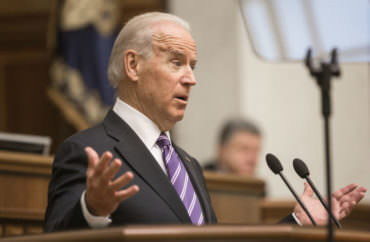Contact: Rebecca Stewart
Telephone: 513-479-3335
Email: info@saveservices.org
Chaos on Campus: Lawmakers Seek Answers for Failure of Sexual Assault Policies
WASHINGTON / April 7, 2020 – Lawmakers are increasingly impatient over the failure of new campus policies to make a dent in the problem of sexual assault. The concerns have come into focus following release of an American Association of Universities report that contained troubling conclusions (1).
First, the AAU report revealed levels of sexual assault have increased in recent years:
“For the 21 schools that participated in both the 2015 and 2019 surveys, the rate of nonconsensual sexual contact by physical force or inability to consent increased from 2015 to 2019 by 3.0 percentage points (to 26.4 percent) for undergraduate women, 2.4 percentage points for graduate and professional women (to 10.8 percent) and 1.4 percentage points for undergraduate men (to 6.9 percent).” (2)
In short, sexual assaults became more common among undergraduate women, graduate women, and undergraduate men.
Also disappointing was the AAU finding that among sexual assault victims, only 45% reported school officials were “very likely” or “extremely likely” to take their report seriously. Consistent with that gloomy assessment, campus police were contacted in only 11.2% of sexual assault cases.
In 2017, SAVE published “Six-Year Experiment in Campus Jurisprudence Fails to Make the Grade,” which documented a five-fold increase in the number of Title IX complaints to the Office for Civil Rights following issuance of the 2011 Dear Colleague Letter (3). The report also detailed numerous incidents of mistreatment of identified victims by campus officials.
The following year, the American Association for University Women reported that 89% of American colleges had received zero reports of rape incidents in 2016 (4). This finding either means that campus rapes are far less common than claimed, or that victims do not view the campus tribunals to be helpful.
Serious shortcomings with campus sexual assault policies also have been documented for accused students (5), for faculty members (6), and by college administrators (7). Despite enormous expenditures of time and money, there is no evidence of benefit for campus policies that were put in place following release of the Department of Education’s policy on campus sexual violence in 2011.
Citations:
- http://www.saveservices.org/2020/04/aau-climate-surveys-reveal-failure-of-campus-sexual-assault-policies/
- https://www.aau.edu/newsroom/press-releases/aau-releases-2019-survey-sexual-assault-and-misconduct
- http://www.saveservices.org/wp-content/uploads/Six-Year-Experiment-Fails-to-Make-the-Grade.pdf
- http://www.saveservices.org/2020/04/89-percent-of-colleges-reported-zero-incidents-of-rape-in-2015-2/
- http://www.saveservices.org/sexual-assault/complaints-and-lawsuits/
- http://www.saveservices.org/sexual-assault/faculty-members/
- http://www.saveservices.org/sexual-assault/college-administrators/
Stop Abusive and Violent Environments is leading the national policy movement for fairness and due process on campus: www.saveservices.org

 Unlike ‘wall-to-wall coverage for Brett Kavanaugh, Donald Trump’
Unlike ‘wall-to-wall coverage for Brett Kavanaugh, Donald Trump’
